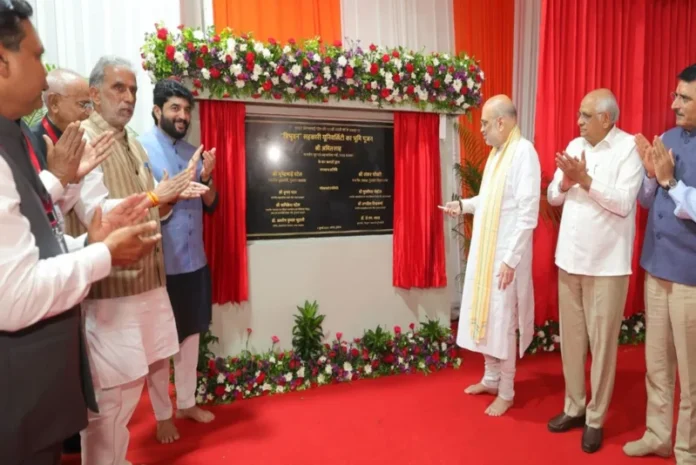Union Home Minister and Cooperation Minister Amit Shah on Saturday will inaugurate the foundation stone of the country’s first national-level cooperative university, Tribhuvan Sahkari University (TSU) in Anand, Gujarat. The occasion is a historic step towards institutionalizing education and research in the cooperative sector.
Gujarat Chief Minister Bhupendrabhai Patel, Assembly Speaker Shankar Chaudhary, Union Ministers of State for Cooperation Krishan Pal Gurjar and Muralidhar Mohol, and Gujarat Ministers for Education and Cooperation Rishikesh Patel and Jagdish Vishwakarma will be present on the occasion of laying the foundation stone.
The establishment of Tribhuvan Sahkari University (TSU) has been seen as a vision-driven initiative to redefine India’s cooperative landscape. Designed to match India’s broad and diversified cooperative economy’s growing education and training requirements, the university will emerge as a premier force of cooperation, innovation, and employment generation — an integrated model referred to as the “Triveni” of development.
Shah will also join the “Ek Ped Maa Ke Naam” tree plantation campaign, a nationwide drive that inculcates environmental consciousness and cultural values. Shah will also initiate an educational module drawn up by the NCERT, for introducing school children to the concepts of cooperatives and highlighting the success of the cooperative movement in the nation.
Tribhuvan Sahkari University is projected to become a national center for capacity development in cooperative management, finance, law, and rural development. With the objective of skill the workers and improving grassroots governance, the university will offer different academic programs with the aim of meeting the evolving needs of the sector.
Commuting with the National Education Policy 2020, TSU will offer flexible and multidisciplinary education opportunities — including PhDs, managerial level degree courses, supervisory level diplomas, and certificate courses for operational personnel. It will also establish specialized schools on campus and expand to other states, building a national academic network for cooperative education and training.
In the next four years, the university will collaborate with more than 200 such cooperative organizations across the country. In the drive to enhance sectoral capacity, it has even set out to provide training to around 20 lakh cooperative personnel in five years—fulfilling the growing needs of around 40 lakh workers and 80 lakh board members who work in cooperative societies in agriculture, dairy, fisheries, and other sectors.
To match the shortage of quality faculty in cooperative education, TSU will promote PhD studies in cooperative studies actively, which will contribute immensely to creating a strong pool of trained teachers. The university shall also establish a dedicated Research and Development Council to drive innovation and work out low-cost technology solutions especially for rural cooperatives. The council will co-operate closely with national and international centers of learning to introduce the best international practices in India’s cooperative environment.

